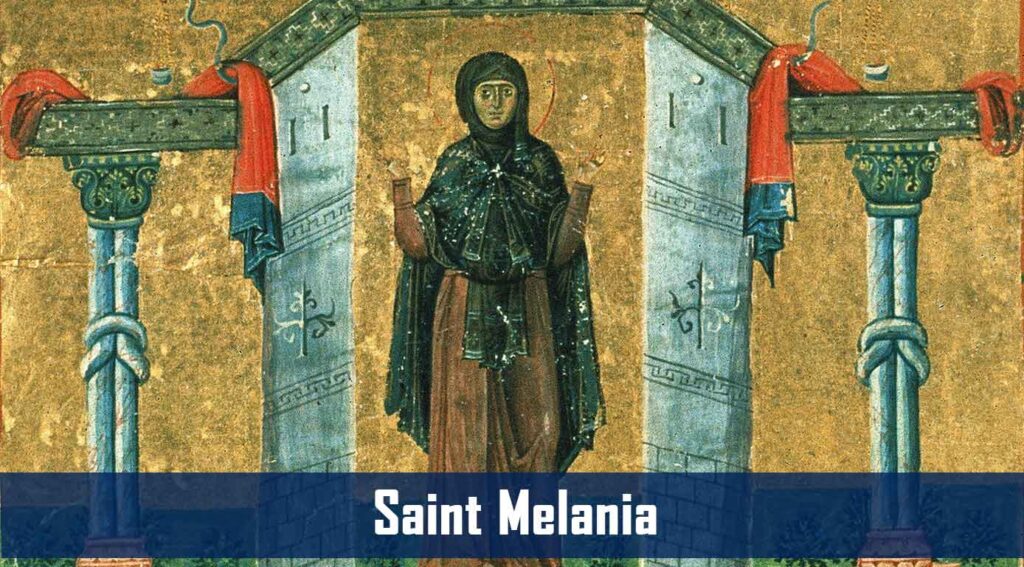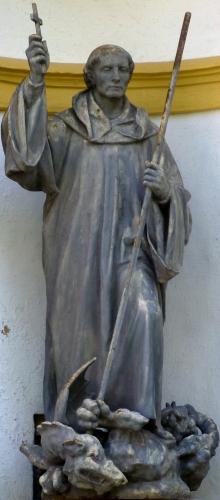Saint Melania was a Christian saint who lived during the reign of Emperor Honorius. She was the only child of the rich and powerful Valerius Publicola and Caeionia Albina. Her relatives from both sides of her family held the highest positions in the state.
At the age of 14, she was arranged to be marriage to Valerius Pinianus. After the early deaths of two children, she and her husband embraced Christian asceticism and maintained a celibate life thereafter. As the sole heiress of her father and paternal grandfather, she inherited their wealth and enormous estates on the death of Publicola after 7 years marriage.
Her dislike of rich apparel which had caused her so much suffering during her father’s life, now led her to give away her silken robes as church altar cloths, her gold ornaments, and everything that was rich and costly in her attire. She wore a garment of coarse wool of the cheapest kind, and fashioned rather to hide and disfigure her beautiful form. She took with her to her villa a great number of poor families and slaves, whom she treated as brothers and sisters.
Melania’s country house afforded hospitality to the pilgrims to Rome, especially numerous deputations of bishops and priests who were received with every mark of honour and respect. She dispensed lavish hospitality and spared no expense in the entertainment of her guests. She decided to dispose of her vast estates and give the proceeds to ecclesiastical institutions and to the poor.
Sources:
Schlitz, Carl (1913). "St. Melania (the Younger)". In Herbermann, Charles (ed.). Catholic Encyclopedia. New York: Robert Appleton Company.
Rampolla del Tindaro, Mariano; Leahy, Ellen Mary Agnes; Thurston, Herbert (1908). London : Burns & Oates. Retrieved 7 November 2022.
Palladius, The Lausiac History (1918), Chapter LIV The Elder Melania
Butler, Alban (1962). Butler's lives of the saints. Vol. 4. P.J. Kenedy & Sons. p. 647. OCLC 18475812.
https://en.wikipedia.org/wiki/Melania_the_Younger








